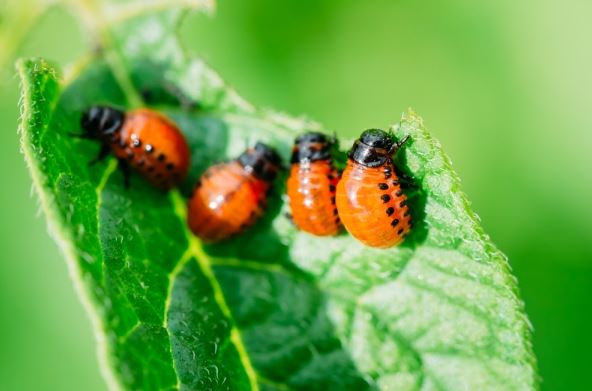How To Keep Unwanted Pests Out Of Your Garden

White flies, spider mites, Japanese beetles, fire ants, slugs, loopers and aphids are just a few pests you’ll want to keep out of your garden. Along with these pests, gardeners in rural areas find themselves facing deer, raccoon, opossum and other vertebrates. To keep pests out of your garden, choose strategies like barriers, pesticides, alarms and sound cultural practices.

Unlike aphids and whiteflies, gophers and voles kill your garden from the ground up. Underground barriers like wire mesh are deterrents. Though it may be impractical to dig up your entire garden to lay down mesh or hardware cloth, you can protect your most sensitive plants by growing them in raised beds with mesh bottoms.
Not every insect, bug or critter in your garden is bad. Beneficial insects like bees, ladybugs and lacewings help to keep non-beneficial insects at bay. They also pollinate flowers and increase vegetable garden yields. However, pesticides and chemical methods are often the best way to control non-beneficial bugs and insects. When applying pesticides, be wary of caustic chemicals or broad-spectrum pesticides that are capable of destroying every insect or bug near your garden.
Deer instinctively flee an area when they see flashes of white cloth or paper because it imitates a warning signal: an upright deer tail. Raccoons avoid areas where radios play or dogs bark. Other nocturnal creatures are sensitive to motion lights. The one drawback to these behavioral controls is the need to change them up. After some time animals become desensitized to the alarm or tactic.
According to Green Pest, a pest control service in Arlington, you should look into disease and insect resistant plants that are adapt to your garden’s growing conditions. They also recommend choosing plants that have strong root systems; so examine the roots before purchase and handle roots carefully when planting. If a plant requires shade, then plant it in shade. If the plant requires full sun and well-draining soil, then choose a site that gives the plant what it needs. A healthy plant is better able to withstand disease and insect invasion than a stressed plant.
Finally, when protecting your garden, make certain to keep your entire garden healthy by choosing non-toxic barriers, placing the right plant in the right place, employing behavioral controls and choosing environment-friendly and beneficial bug-friendly pesticides.
